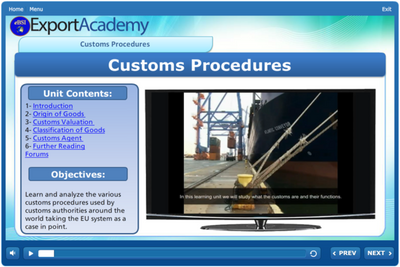Priority Trade Issues from a US Customs Perspective

In the wake of the global economic crisis which is seemingly engulfing commerce worldwide, what can be done to ensure that the economies of nations worldwide remain protected from the full force of the global economic slowdown?
There are many programs which governmental agencies around the world can implement in a concerted effort to protect their own national economy from most of the effects of the global economic crisis.
Since the onset of the global economic crisis the United States Government has been relying heavily on the assistance of U.S. Customs and Border Protection to facilitate the flow of legitimate trade while at the same time filtering out threats to the national economy through the use of priority trade issues.
These priority trade issues clearly outline the areas in which customs officials will direct a majority of their attention as it would relate to imported merchandise. In general, these priority trade issues identify areas in which revenue loss could be substantial enough to damage the economy, as well as, identify areas in which the welfare of the general population may be threatened by imported merchandise.
What are the priority trade issues which are used by customs officials as they handle the importation of merchandise? These issues encompass a wide and varied variety which would affect various segments of the economy, as well as, the end users of “questionable” imported merchandise. In the listing below you will find these priority trade issues along with their associated explanation.
Agriculture Priority Trade Issue (PTI)
The primary purpose of the Agriculture PTI is to ensure that contaminated, diseased, infested and otherwise adulterated agricultural products are prohibited from importation which could harm the general population, plant and animal life, as well as, the overall economy.
Antidumping and Countervailing Duties (ADCVD) PTI
The primary purpose of the Antidumping and Countervailing Duties (ADCVD) PTI is to ensure that imported merchandise is not sold within the U.S. marketplace at a lesser value than identical or similar domestic merchandise, thus giving the imported merchandise a distinct advantage. These duties will be assessed by U.S. Customs and Border Protection when an unfair trade practice of this nature is discovered. This indirectly protects living standards in developing countries that produce the goods.
Import Safety PTI
The primary purpose of the Import Safety PTI is to ensure that unsafe products are not imported into the commerce of the United States, as these unsafe products may be hazardous to the general population, plant and animal life, as well as, the environment.
Intellectual Property Rights PTI
The primary purpose of the Intellectual Property Rights PTI is to ensure that counterfeit and/or pirated merchandise which could potentially harm the economy does not gain entry to the commerce of the United States.
Revenue PTI
The primary purpose of the Revenue PTI is to ensure that U.S. Customs and Border Protection has established an effective internal control policy for the protection of any duties and taxes which are collected from the importation of merchandise, and that the financial accounting system is compliant with the highest accounting standards. The revenue taken in by U.S. Customs and Border Protection is vital to the funding of various governmental programs; therefore, it absolutely critical that these funds be protected once obtained.
Textiles PTI
The primary purpose of the Textiles PTI is to ensure that the textile products which are imported fully comply with laws and regulations which have been established to regulate the importation of such materials, and that these importations also comply with free trade agreement provisions, intellectual property provisions, as well as, quotas.
Penalties PTI
The primary purpose of the Penalties PTI is to ensure that any monetary penalties associated with noncompliance are actually effective in deterring noncompliant activity. In order to ensure that these penalties are successful, their must be an effective channel of communication amongst the various ports of entry and the fines, penalties and forfeitures offices to ensure that all directives are executed in the same manner nationwide. These priority trade issues have been the focus of customs inspectors for quite some time; however, in the recent decline in the global economy these same priority trade issues have again become a focal point for the protection of the U.S. economy and in turn the global trading environment.

